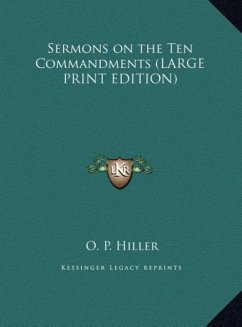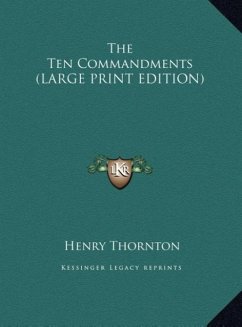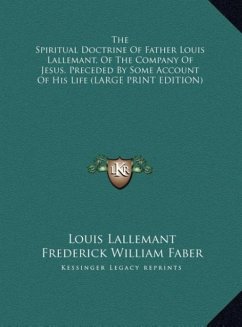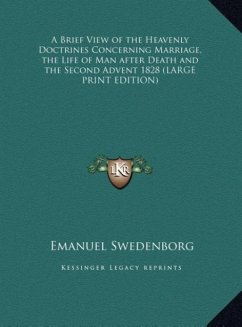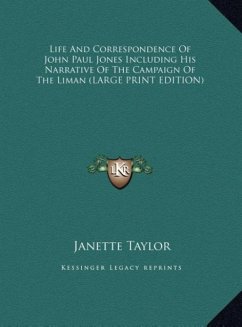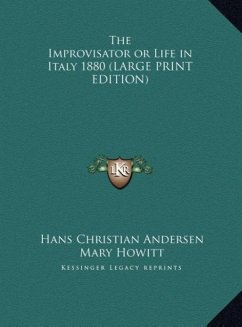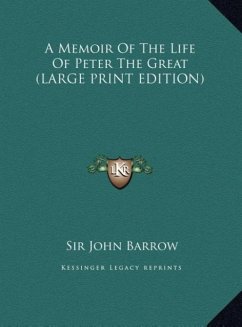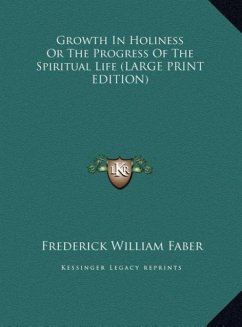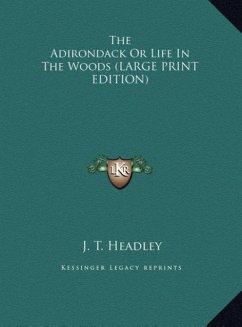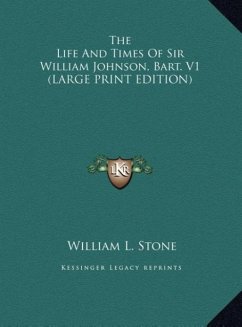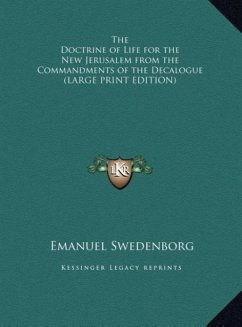
The Doctrine of Life for the New Jerusalem from the Commandments of the Decalogue (LARGE PRINT EDITION)
Versandkostenfrei!
Versandfertig in 1-2 Wochen
32,99 €
inkl. MwSt.

PAYBACK Punkte
16 °P sammeln!
(LARGE PRINT EDITION) 1825. Emanuel Swedenborg, the noted Swedish scientist, philosopher and theologian, is best known for his later writings in which he presents ideas both Christian and ecumenical, for a new spiritual era or new church to be known as the New Jerusalem. Contents: That all Religion has Relation to Life and that the Life of Religion is to do Good; That No One Can do Good, which is really Good, from himself; That So Far as Man Shuns Evils as Sins, so far He Does What is Good, not from Himself, but from the Lord; That So Far as any one Shuns Evils as Sins, so far he loves Truths;...
(LARGE PRINT EDITION) 1825. Emanuel Swedenborg, the noted Swedish scientist, philosopher and theologian, is best known for his later writings in which he presents ideas both Christian and ecumenical, for a new spiritual era or new church to be known as the New Jerusalem. Contents: That all Religion has Relation to Life and that the Life of Religion is to do Good; That No One Can do Good, which is really Good, from himself; That So Far as Man Shuns Evils as Sins, so far He Does What is Good, not from Himself, but from the Lord; That So Far as any one Shuns Evils as Sins, so far he loves Truths; That So Far as any one Shuns Evils as Sins, so far he has Faith and is Spiritual; That the Decalogue Teaches What Evils are Sins; That Murders, Adulteries, Thefts, and False Witness of Every Kind, with the Concupiscences Prompting Thereto, are Evils which Ought to be Shunned as Sins; That So Far as any one Shuns Murders of Every Kind as Sins, So Far He has Love Towards His Neighbor; That So as any one Shuns Adulteries of Every Kind as Sins, So Far He Loves Chastity; and That So Far as any one Shuns Thefts of Every Kind as Sins, So Far He Loves Sincerity. See other titles by this author available from Kessinger Publishing.



